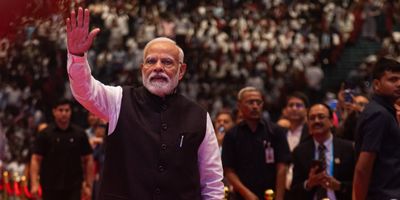The United Kingdom and Japan recently hosted influential AI summits, spurring global conversations about regulatory solutions. Now, India wants in on the act, and it is set to host a major conference next month aimed at boosting trust in and adoption of artificial intelligence. But as concerns over the safety of AI grow, New Delhi faces a choice between taking a leading role in the growing international consensus on AI regulation and striking out on its own to nurture innovation with light regulatory touches.
India’s government has flip-flopped on the issue. In April, it said it would not regulate AI at all, giving entrepreneurs the leeway they need to build up a world-leading innovation environment. But just two months later, the Ministry of Electronics and Information Technology said India would roll out broad rules after all through the Digital India Act, a major overhaul of decades-old laws governing the tech sector that is still being drafted.
You can see the temptation for India to give the market free reign: AI is expected to add nearly a trillion dollars to India’s GDP by 2035. Its $23 billion market for the semiconductor chips that power AI is expected to nearly quadruple by 2028. The country also has a thriving tech startup culture – 80,000 firms bloomed between 2012 and 2020 – and world-class engineering schools, including the infamously competitive and rigorous Indian Institute of Technology system. Major domestic players like Tata and Reliance have attracted investment and partnerships with NVIDIA, the world’s foremost semiconductor designer, eager to build up new markets to replace Chinese business lost to US export controls.
So why shouldn’t India press its advantage? Well, it’s not as if New Delhi is immune to the disruptions and dangers AI potentially poses. The same concerns about malicious actors using the technology to spread disinformation or conduct cyberattacks apply to India, and being the odd country out when even China is joining efforts to set global rules of the road may not be the best look. We’ll get a better sense of India’s preferred policy direction when they host the annual summit of the OECD’s Global Partnership on Artificial Intelligence on Dec. 12-14.